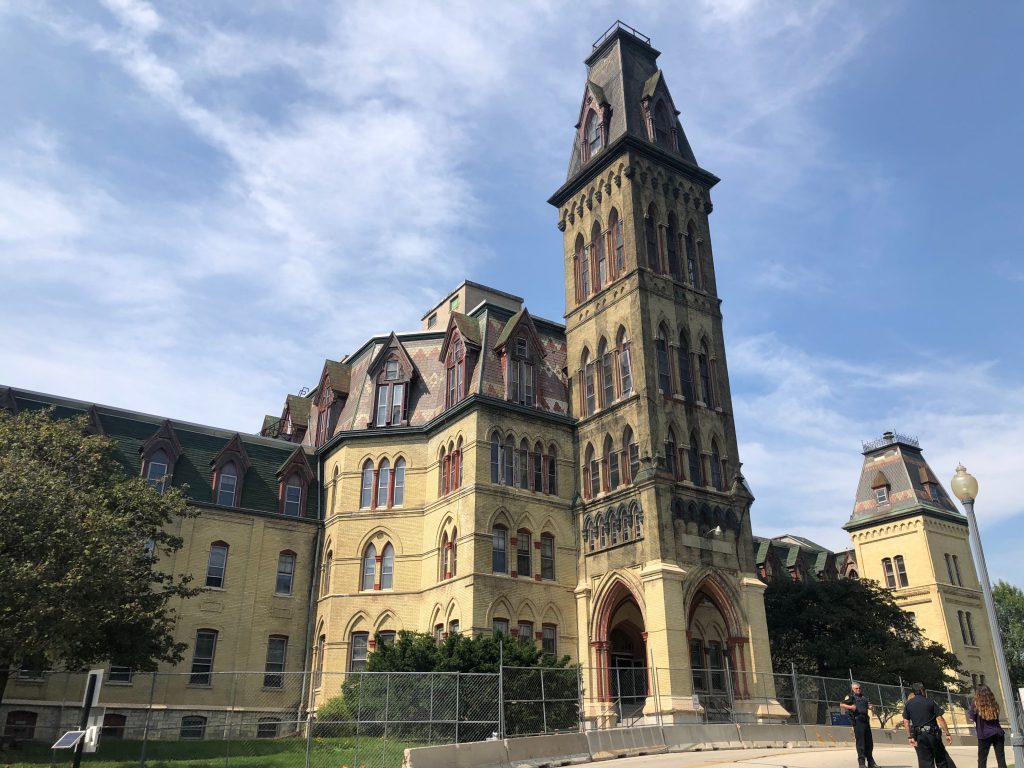City Invests in 207 Affordable Homes
Housing Trust Fund will provide $900,000 in capital. Can this program be grown?
The city’s Housing Trust Fund, a 12-year-old city program, will provide $900,000 in capital to support developers creating 207 units of affordable housing.
The developers, who will pair the money with funds from other sources, will create housing for everyone from homeless veterans to low-income seniors.
“There is a very competitive application for these dollars,” said Alderman Michael Murphy, who has served as the program’s steward since its inception. He detailed the grant awards to the Common Council’s Zoning, Neighborhoods & Development Committee last week.
The winners include the Old Main Soldiers Home project (101 units, $225,000, Alexander Company & Housing Authority of the City of Milwaukee), Villard Commons (43 units, $315,000, Index Development Group & Brinshore Development), Milwaukee Habitat for Humanity (four new homes, 10 homes in need of critical repair, $50,000), a scattered-site project from Rebuilding Together Greater Milwaukee (critical repairs, accessibility rehabilitation concentrated on low-income zip codes, $175,0000) and the 37th Street School redevelopment (49 units, $135,000, Heartland Housing).
The city’s Housing Trust Fund is one of 13 sources of capital for the project.
The city’s Housing Authority will manage the day-to-day operations of the complex once it opens. Any construction savings related to the city’s grants will provide support for the authority’s operations, including supportive programming. Project partners gathered in September to mark the start of construction on the historic complex.
Murphy, whose district includes the Milwaukee Veteran’s Administration Medical Center where the Soldiers complex is located, said the building has been vacant since 1989. The project is scheduled to be completed in Spring 2021.
The developers of Villard Commons, a 43-unit, five-story apartment building, are relying on the funds to plug the final financing gap in the $7.4 million project. A groundbreaking was held in November on the project, with developer Que El-Amin telling Urban Milwaukee that the funds were the final piece of the puzzle to advance the project. El-Amin is one of five partners at Index Development Group, who met in 2015 while they were enrolled in the Associates of Commercial Real Estate (ACRE) program. The program is intended to teach real estate development skills to women and minorities.
The committee unanimously approved the 2019 grant funding.
How To Find More Applicants?
The committee spent time debating how the city could get more applicants for funding.
The funds are allocated into four different categories: homelessness, rental, homeownership and “other needs as identified.” In at least one category, simply applying to the program generated an almost guaranteed win. The Soldiers Home application was the only one submitted in the Homelessness category.
Higgins said the city advertises the program in the Milwaukee Journal Sentinel, Milwaukee Community Journal and a Spanish-language publication. Murphy suggested the council seek to grow the program’s reach by also using their social media channels to reach more people.
One issue might be the lack of funding available and its regularity. This latest round of awards came after a one-year hiatus while the fund rolled over its prior allocation. But even with the combined allotments, the program only had $900,000 to award. This pales in comparison to the statewide low-income housing tax credit program that provides tens of millions in credits annually.
The length of a winning application could also prove an issue. The City Clerk‘s office, in response to a record request from Urban Milwaukee, reported that the Old Main application is between 300 and 400 pages long.
A total of $600,000 is available for new grants or loans in the 2020 city budget.
Legislation Link - Urban Milwaukee members see direct links to legislation mentioned in this article. Join today
If you think stories like this are important, become a member of Urban Milwaukee and help support real, independent journalism. Plus you get some cool added benefits.
Political Contributions Tracker
Displaying political contributions between people mentioned in this story. Learn more.
Eyes on Milwaukee
-
Church, Cupid Partner On Affordable Housing
 Dec 4th, 2023 by Jeramey Jannene
Dec 4th, 2023 by Jeramey Jannene
-
Downtown Building Sells For Nearly Twice Its Assessed Value
 Nov 12th, 2023 by Jeramey Jannene
Nov 12th, 2023 by Jeramey Jannene
-
Immigration Office Moving To 310W Building
 Oct 25th, 2023 by Jeramey Jannene
Oct 25th, 2023 by Jeramey Jannene





















